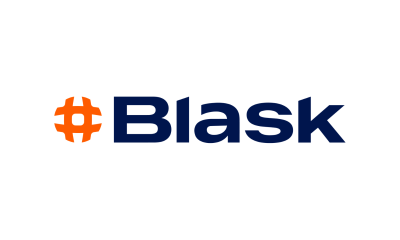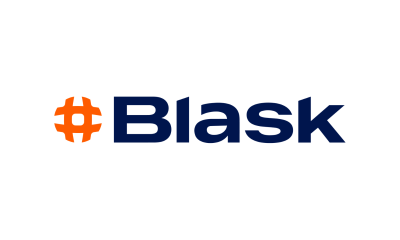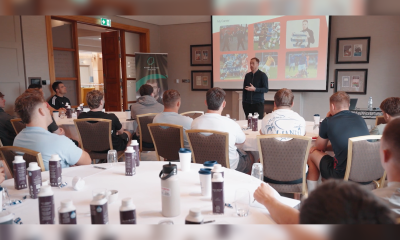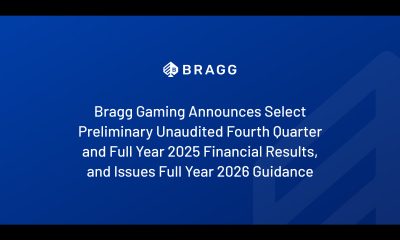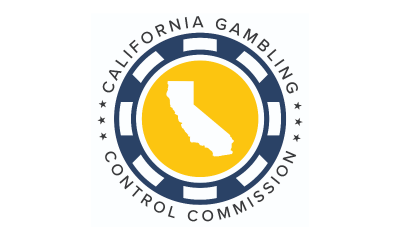Compliance Updates
Sweden’s Konsumentverket Publishes Report on Loot Boxes and Other Gambling-like Features in Games

The Swedish Consumer Agency Konsumentverket (KO) has published a report on loot boxes and other gambling-like features in games.
The report states that loot boxes or other gambling-like features in games could be regulated under the Swedish Gambling Act (2018) when prizes from in-game features constitute money or money’s worth.
If the in-game features have a monetary value from being able to be traded for money or money’s worth, then there is a real risk that loot boxes or other gambling-like features in games could constitute gambling and, therefore, would require a licence.
The Swedish courts have yet to decide whether loot boxes and other gambling-like features in games fall under the Swedish Gambling Act or not. If they would be considered to fall under the act the KO deems the act to provide wide protection for consumers.
The report shows that there is not, at this point in time, sufficient research to be able to establish a connection between loot boxes and gambling. The KO cannot motivate or recommend any further measures to be taken due to the lack of sufficient research. However, the KO still encourages the gaming industry to continue its self-regulation.
Despite the lack of sufficient research, the KO deems there to be grounds for further investigation with regard to children and adolescents, which is considered to be a particularly vulnerable group of consumers. For this reason, the KO believes that further regulation could be justified, if supported by research, in order to protect the wellbeing of children and adolescents.
The report is perhaps the first step in the process of adjusting Swedish consumer regulation to the risks posed by the blurring of lines between gaming and gambling.
Compliance Updates
Romanian Mayors Push to Ban Gambling Halls
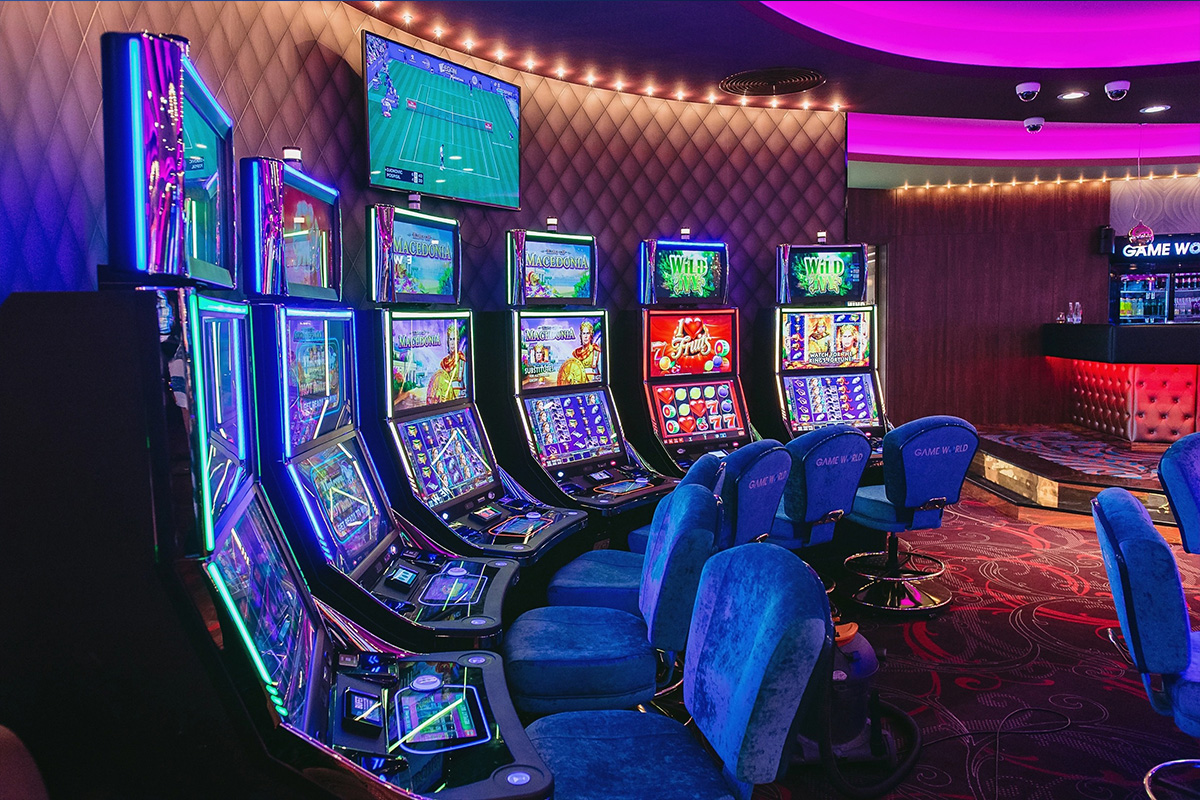
A wave of Romanian mayors has followed the example set by Slatina’s mayor, who recently announced plans to eliminate gambling halls from his city under newly amended legislation. While the political signal is growing louder, the decisive vote belongs to local councils – and gambling operators are unlikely to retreat without resistance.
On February 26, the mayor of Vaslui, Lucian Braniște (PSD), said he would submit a draft decision to the Local Council seeking a ban on gambling halls within the city. He argued that gambling has become a serious social issue across many Romanian communities.
“In recent years, gambling has become a real problem in many communities in Romania. Beyond advertisements and colorful lights, behind these halls, there are too often stories of affected families, debts, addiction, and suffering,” the mayor said.
In Ploiești, mayor Mihai Polițeanu also voiced support for eliminating gambling venues and announced that he would table a similar proposal before the City Council, Economedia.ro reported. He described parts of the city centre as having turned into a “strange, underworld-like” area, suggesting that the proliferation of betting shops has contributed to urban degradation.
The mayors of Brăila and Rădăuți have likewise declared their intention to pursue restrictions on gambling activities.
The initiatives follow a recent amendment to gambling legislation adopted by the government, which now requires operators to obtain not only a national licence but also a local authorisation from the mayor’s office in the municipality, town, or commune where they operate. The new provision also empowers local councils to decide whether such activities may take place within their administrative boundaries.
While the political momentum appears to be building, the outcome will ultimately depend on council votes in each locality. Given the economic stakes and the industry’s established presence, legal and political battles are expected before any city can formally declare itself gambling-free.
The post Romanian Mayors Push to Ban Gambling Halls appeared first on Eastern European Gaming | Global iGaming & Tech Intelligence Hub.
Compliance Updates
Crypto.com Receives Limited Financial Institutions Licence in Europe

Crypto.com has announced another regulatory milestone: its EU MiCA regulated entity has received a Limited Financial Institutions licence from the Malta Financial Services Authority (MFSA). The approval allows the company to continue delivering its full suite of stablecoin services – qualifying as payment services – across the European Union, without disruption.
This additional licence is for the provision of services exclusively in relation to electronic money tokens (EMTs). The licence was acquired to navigate a complex regulatory landscape resulting in overlapping crypto asset services (MiCA) and payment services (PSD2). By securing the Limited Financial Institution Licence, Crypto.com has addressed both regulatory regimes ensuring full compliance across every aspect of its stablecoin operations.
Crypto.com’s Malta entity received MiCA approval in January 2025, allowing the company to passport services across the European Economic Area (EEA). Notably, Crypto.com already holds a full Electronic Money Institution (EMI) licence in Europe, making it one of the most comprehensively authorised platforms operating in the region.
“We are one of the most regulated crypto platforms in the world and receiving this licence proves, yet again, that we are committed to working with authorities to ensure the strongest compliance standards. Our stablecoin business and services remain a pivotal part of our European product offering so it was vital we secured this limited licence to continue providing seamless access to our institutional and retail customers,” said Eric Anziani, President and Chief Operating Officer at Crypto.com.
The limited Financial Institutions licence adds to Crypto.com’s expanding list of licences and registrations globally including, but not limited to, a UK Electronic Money Institution licence (FCA), a Major Payment Institution licence in Singapore (MAS), a Virtual Assets Service Provider licence in Dubai (VARA), U.S. Money Transmitter Licences, U.S. Designated Contracts Market (DCM) & Derivatives Clearing Organization (DCO) licences and recently conditional approval from the U.S. OCC for a National Trust Bank Charter.
The post Crypto.com Receives Limited Financial Institutions Licence in Europe appeared first on Eastern European Gaming | Global iGaming & Tech Intelligence Hub.
CertiIQ
CertiIQ Launched by Deion Williams and Julian Borg-Barthet to Streamline iGaming Compliance

CertiIQ , a RegTech platform created to offer a unified source of truth for certification, audit, and regulatory compliance, has announced its entry into the iGaming sector today.
, a RegTech platform created to offer a unified source of truth for certification, audit, and regulatory compliance, has announced its entry into the iGaming sector today.
CertiIQ consolidates test reports, monitors certification and audit expiration dates, and facilitates secure collaboration among stakeholders. It also provides live RTP monitoring, asset integrity verification through API, workflows for change management, and comparative regulatory gap analysis for businesses entering new markets.
consolidates test reports, monitors certification and audit expiration dates, and facilitates secure collaboration among stakeholders. It also provides live RTP monitoring, asset integrity verification through API, workflows for change management, and comparative regulatory gap analysis for businesses entering new markets.
It has also been designed to guarantee that reports are automatically incorporated into client workspaces, eliminating manual transfers and minimizing operational friction, and has been created to facilitate workflows with prominent labs such as GLI, BMM, RiskCherry, Gaming Associates, and eCOGRA.
Leading this innovative platform are seasoned professionals Deion Williams and Julian Borg-Barthet, who collectively bring over 30 years of combined expertise from prominent testing laboratories, operators, and suppliers.
“Building something that we wish we had when we first got started, is a proud moment for us” said Julian Borg-Barthet, Co-Founder of CertiIQ . “The enthusiastic feedback we’ve received so far has been a testament that we’ve been on the right track.”
. “The enthusiastic feedback we’ve received so far has been a testament that we’ve been on the right track.”
Launching in early access this March, CertiIQ is welcoming its initial customers while progressing toward a live release and is eager to partner with early adopters as regulatory challenges increase across all regulated iGaming markets worldwide.
is welcoming its initial customers while progressing toward a live release and is eager to partner with early adopters as regulatory challenges increase across all regulated iGaming markets worldwide.
The post CertiIQ Launched by Deion Williams and Julian Borg-Barthet to Streamline iGaming Compliance appeared first on Eastern European Gaming | Global iGaming & Tech Intelligence Hub.
-

 Adjusted EBITDA7 days ago
Adjusted EBITDA7 days agoBragg Gaming Announces Select Preliminary Unaudited Fourth Quarter and Full Year 2025 Financial Results, and Issues Full Year 2026 Guidance
-

 Bagley-Keene Act7 days ago
Bagley-Keene Act7 days agoCalifornia Gambling Control Commission Issues Critical Guidance on Stakeholder Communications and Ex Parte Rules
-

 iGaming6 days ago
iGaming6 days agoPRAGMATIC PLAY UNEARTHS PROGRESSIVE MULTIPLIERS IN ROLLING IN TREASURES
-

 Comatel5 days ago
Comatel5 days agoCOMATEL CELEBRARÁ UNA FIESTA PARA CIENTOS DE OPERADORES TRAS FINALIZAR EL PRIMER DÍA DE LA FERIA ESPAÑOLA, INTERAZAR
-

 Betty Casino7 days ago
Betty Casino7 days agoBetty Casino Announces Partnerships with Toronto FC and Toronto Argonauts
-

 Africa7 days ago
Africa7 days agoGroove Targets Africa’s iGaming Boom at SiGMA Cape Town 2026
-

 Booming Games6 days ago
Booming Games6 days agoBooming Games Introduces Instastrike, the Latest Diamond Hits Trio
-

 Australia7 days ago
Australia7 days agoTabcorp Pays $158,400 Penalty for Taking Illegal In-Play Sports Bets





